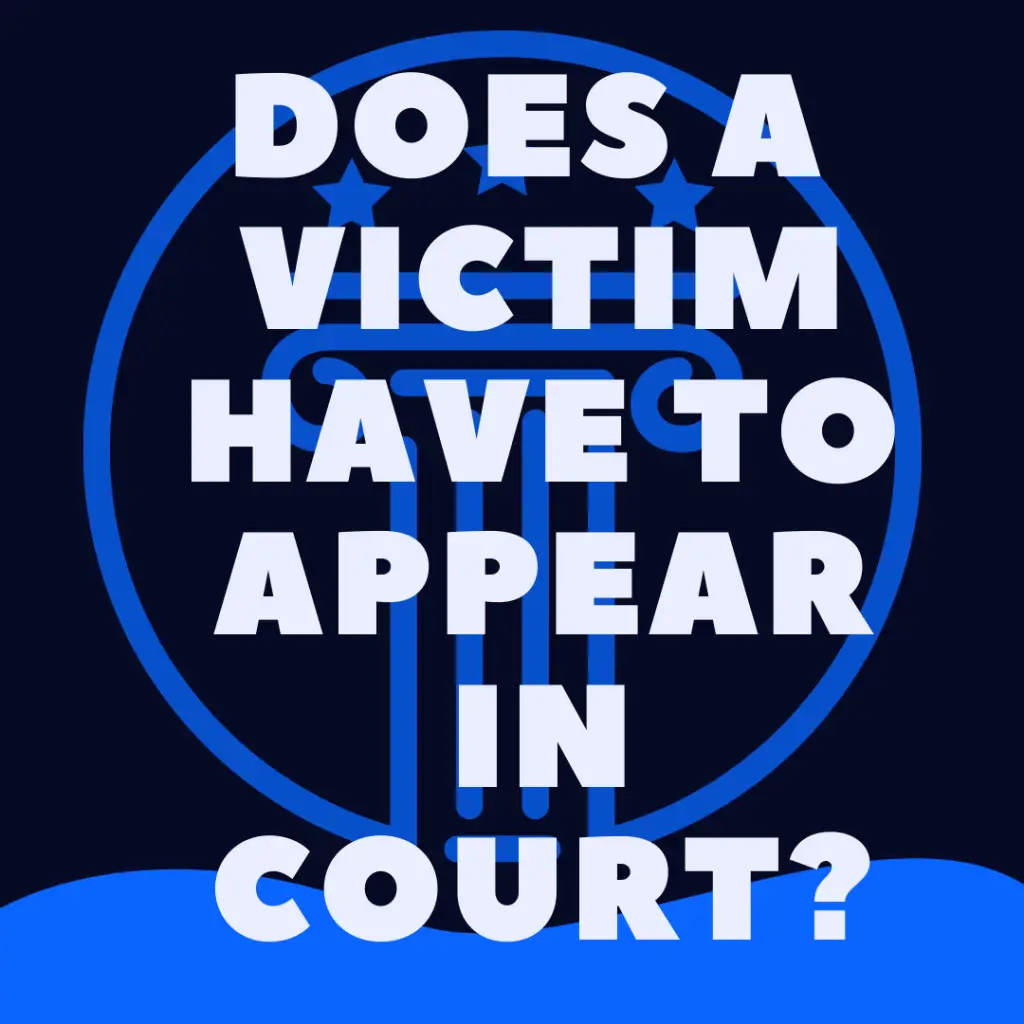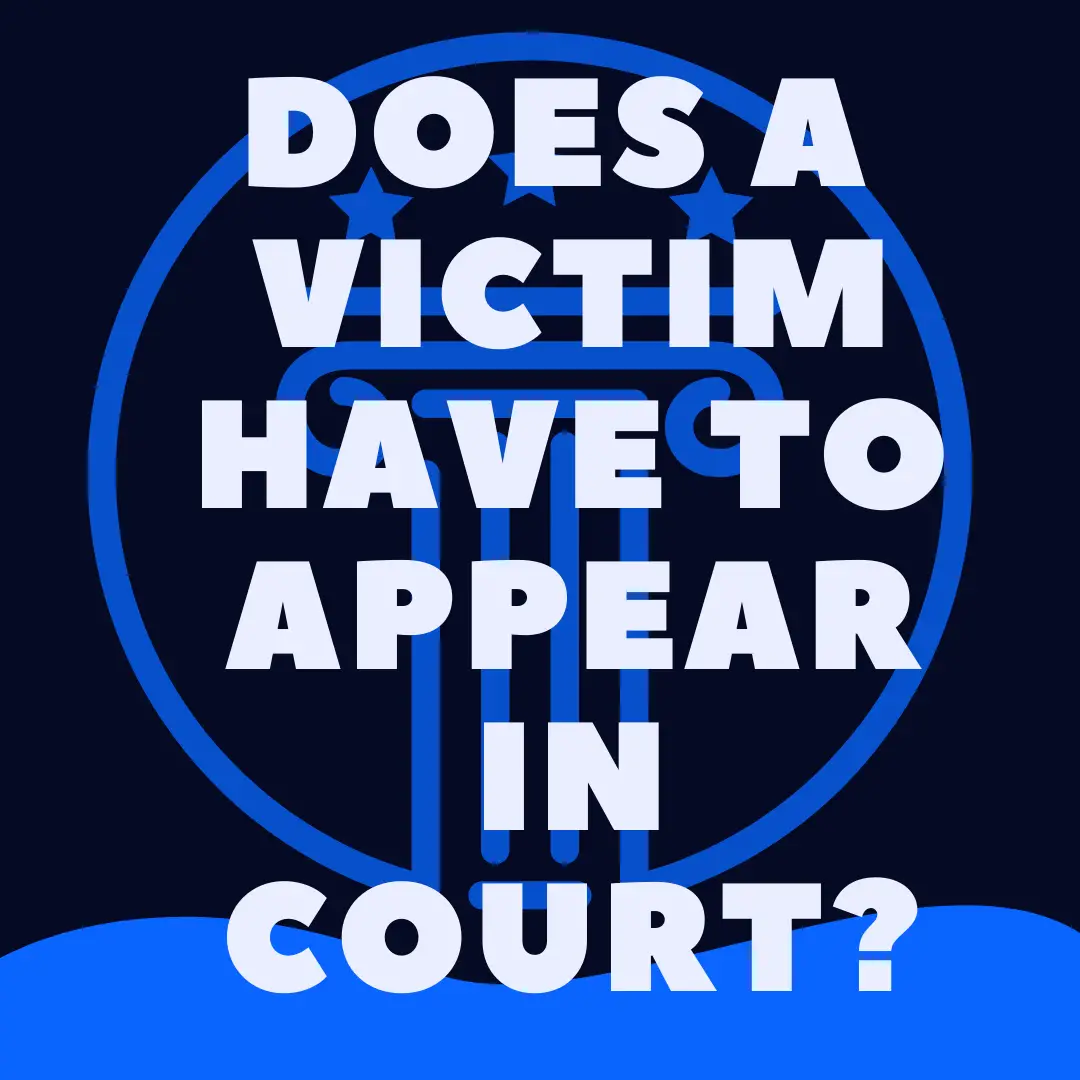It depends.
In the article that follows, we’ll talk about the times when a victim has to appear in court, versus a victim does not have to appear in court.
Does A Victim Have To Appear In Court? (EXPLAINED)
Disclaimer
The contents of this web page are for informational purposes only, and nothing you read is intended to be legal advice. Please review our disclaimer about law/legal-related information on this website before taking action based upon anything you read or see.
Victim’s Rights
In a criminal case, the victim has many rights that are established by statute in the particular jurisdiction.
While these vary, these laws generally:
- protect the victim’s personal information (such as location) from the defendant
- require that the victim receive advance notice of all significant court appearance
- provide the victim with a chance to attend and speak at sentencing
What they do not require is that the victim cooperate or do anything else for law enforcement or the prosecutor in general.
It’ll be the victim’s choice if she decides to attend arraignments.
However, there are some times when the victim will not have a choice about going to court.
Compelled Appearance
For better or worse, the victim is often a witness in the criminal case.
In some situations, the participation of the victim in the case is vital to the successful prosecution.
In that situation, the prosecutor will likely issue a subpoena to the victim to compel her personal appearance.
With a subpoena, the victim does not get to choose (as she would with other hearings) to attend or not.
If you disobey the command of a lawfully and correctly issued subpoena, you risk an order of contempt against you.
The penalties for contempt vary, but could be jail and/or a fine.
Obviously the prosecution would prefer to have a victim who was willing to participate without having to be forced.
But if the situation warrants it (like the prosecution has taken the position that case against a specific individual has to be tried), then the prosecutor will just go for it and hope for the best.
Will The Case Be Dismissed If The Victim Fails To Appear?
Perhaps.
But perhaps not.
There are appellate cases which have overturned dismissals that resulted from the victim’s failure to appear.
If the case was important enough, the prosecutor could ask for a postponement of the case, and also that the court issue a “bench warrant.”
With a bench warrant, the prosecutor could then ask the police to go find the victim, arrest him or her, and lodge him or her in the jail pending the hearing.
If the police know where the victim is, they might even just continue on with the trial and return to that particular bit of testimony when the police return to court with the arrested victim.
Can The Victim Get Out Of The Subpoena?
Maybe.
Instead of just no-showing, some subpoenaed victims hire an attorney to file what is called a “motion to quash” the subpoena.
The motion to quash would be heard in advance of the ultimate hearing, so it wouldn’t be left to the day of trial to figure out whether the victim would have to attend.
Obviously the motion would need to have better reasons that “I don’t want to” in support of the relief requested.
But for people who are desperate to avoid appearing in court in the criminal case, a motion to quash might help convince the prosecutor to leave them alone.
Wrap Up
Want to learn more about your criminal justice system?
Browse our free legal library guides for more information.
You might also be interested in:
- Why Do Cases Go To Trial Instead of Settling?
- Can A Victim Ask That Charges Be Dropped?
- Can A Prosecutor Become A Judge?
- Are Prosecutors Considered Law Enforcement?
- Probation Officer vs Police Officer (Compared)
- 13 Advantages and Disadvantages of Probation You Should Know
- Tips For Living With Someone On Parole
- Can You Trade Probation For Jail Time?
- Do First Time Offenders Go To Jail?
- How Long After Arraignment Is Sentencing?



